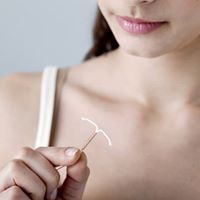FAQs
Which Birth Control Methods are Available?
Many options are available today to accommodate your health, lifestyle, and desires, including both short-term and long-term, as well as hormonal and nonhormonal birth control methods. Dr. Epstein also offers education concerning barrier contraceptives, such as the following:
- Male or female condoms
- Diaphragms
- Birth control sponges
- Cervical caps
She discusses the effectiveness of these methods, as well as their ability to protect against HPV and other STDs, to determine if these are the best options for your sexual lifestyle. If you're looking for a more long-term or effective solution for birth control, Dr. Epstein educates you on the following methods:
- Pills, both progestin-only and estrogen-based options
- Hormonal and nonhormonal intrauterine devices (IUDs)
- Patch
- Injection
- Implant
- Ring
What are Natural Alternatives to Hormonal Birth Control?
If you want to take a more natural approach to preventing pregnancy, Dr. Epstein discusses the withdrawal method and how you still have a 22% chance of getting pregnant. She also educates you on how to use the “rhythm method,” which consists of determining your most fertile days and avoiding unprotected sexual intercourse during those times. However, you're still at risk for developing HPV and other STDs using these methods.
Which Birth Control Methods Prevent HPV and Other STDs?
Only abstinence absolutely protects against HPV and other STDs, although condoms are a close second. Especially if you're using one of the more long-term solutions for birth control, Dr. Epstein may recommend getting the HPV vaccination to prevent an infection that can lead to cervical cancer.
The most recent statistics provided by the Centers for Disease Control and Prevention estimate about 80 million people in the United States have HPV, so it's possible to contract it if you don't receive a vaccination. Whether you're a teen or an adult, it's important to consider the vaccination since approximately 14 million sexually active men and women of all ages contract HPV each year.
Dr. Epstein might also recommend using a barrier method along with a long-term birth control method to prevent against STDs if you're not in a monogamous relationship.
To learn more about your available options for family planning and to protect against STDs, contact Dr. Epstein and her caring staff today.


